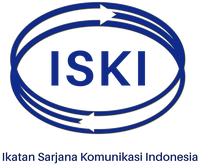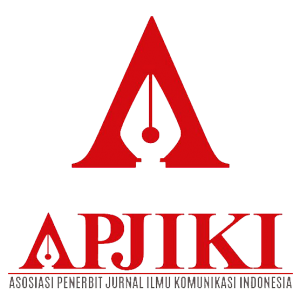Pelaksanaan Employer Branding PT. Arya Noble
Abstract
qualitative data that focuses on knowing the employer branding process carried out by PT. Arya Noble in forming the
image “to be an excitement place to grow and creating values”. This study aims to discover how is (1) the employer value
proposition is developed by PT. Arya Noble, (2) the external marketing stage of the employer brand conducted by PT.
Arya Noble, (3) the internal marketing stage of the employer brand conducted by PT. Arya Noble. This research used
positivism paradigm with descriptive qialitative methode. Data collection techniques used include moderate participative
observation, in-depth interviews, and literature study. The data validity technique uses source triangulation. The results
of this research revealed that (1) The EVP by PT. Arya Noble consist company culture “The Now Values” as a basic
guideline for employees to behave, the use of Top-Down management style to increase performance, the use of OKRS
system in performance appraisal, as well as consumer impression on the Sub-Business Unit, (2) The external marketing
stage is carried out by using online and offline tools to form attractions and build awareness to the public, both for those
who were looking for a job or not. So they would understand and join the company, (3) The internal marketing stage is
carried out through training activities, rewards, and internalisation of “The Now Values” culture to the employees in
order to improve the performance as well as employees psychological contract towards the company. The conclusion is
company has done all of the employer branding process. However there are shortcomings that need to be overcome on
every step like employment image, gamification and career tab on website, advertising campaign, and also the application
for company culture.
Keywords
Full Text:
PDFReferences
Ahmad, Umer. 2013. Impact of Training on Employee Retention. Case Business School.
Alhamid, Thalha., & Anufia, Budur. (2019). Resume: Instrumen Pengumpulan Data. Sorong: Sekolah Tinggi Agama Islam Negeri (STAIN).
Ambler & Barrow. 1996. The Employer Brand. London: London Business School.
Amelia, Agnes. 2018. Employer Branding: When HR is the New Marketing. Jakarta: Penerbit Buku Kompas.
Ardianto, Elvinaro. 2011. Handbook of Public Relations. Bandung: SIMBIOSA REKATAMA MEDIA
Backhaus & Tikoo. 2004. Conceptualizing and Researching Employer Branding.New York: School of Business, State University of New York. Career Development International. 501-517.
Badura, Jolanta. 2015. Recruitment Advertising ad an Instrument of Employer Branding: A Linguistic Perspective. Cambridge: Cambridge Scholars Publishing.
Biswas, Mukesh K. 2012. Employer Branding: A Human Resource Strategy. India: Indian Institute of Technology Kharagpur.
Breaugh, James. 2009. Recruiting And Attracting Talent. USA: SHRM Foundation.
Bungin, Burhan. 2005. Metodologi Penelitian Kualitatif. Jakarta: Kencana.
D. Pathardikar, Sahu & Maurya. 2013. Leadership and Employer Branding: Where Do Employee Engagement And Psychological Attachment Stand?. Jaunpur: VBS Purvanchal Univeristy.
Diamastuti, Erlina. Paradigma Ilmu Pengetahuan Sebuah Telaah Kritis. Surabaya, Universitas Wijaya Kusuma Surabaya.
Gilani, Hasan & Lucy Cunningham. 2017. Employer Branding and Its Influence on Employee Retention: A Literature Review. UK: University of Brighton. The Marketing Review. Vol.17. No.2. Oktober: 239-256.
Gohari, Kamkar, Hosseinipour, Zohoori. 2013. Relationship Between Rewards And Employee Performance: A Mediating Role of Job Satisfaction. Malaysia: UPM. Interdisciplinary Journal of Contemporary Research in Business. Vol.5. No.3. Juli: 571-597.
HRDive Leverage Employer Branding To Attract Top Intern Talent diakses melalui https://www.hrdive.com/news/leverage-employer-branding-to-attract-top-intern-talent/523080/ pada 14 Februari 2020.
ILO. 2017. How to Design, Plan, Implement and Evaluate an Employment Fair. Egypt: International Labour Office.
Irwan. 2018. Relevansi Paradigma Positivistik Dalam Penelitian Sosiologi Pedesaan. Sumatera Barat, Sekolah Tinggi Keguruan Ilmu Pendidikan Persatuan Guru Republik Indonesia.
Krog, Anja. 2014. The Relationship Between Organizational Culture and Work Engagement: A Multilevel Investigation. Oslo: Department of Psychology.
Lievens, Filip & E.Slaughter, Jerel. 2016. Employer Image and Employer Branding: What We Know and What We Need to Know. Belgium: Annual Reviews.
Macalik, Joanna & Sulich, Adam. 2019.
External Employer Branding of Sustainable Organizations. Lithuania: Vilnius Gediminas Technical University.
Mahesh & Suresh. 2019. Employer
Branding as an HR Tool for Talent Management – An Overview. India: Department of Studies in Commerce Manasagangotori. International Journal of Management Studies. Vol 6. 74-80.
Markos, Solomon & Sridevi, M. Sandhya. 2010. Employee Engagement: The Key to Improving Performance. India: Andhra University. International Journal of Business and Management. Vol 5. No.12. Desember: 89-96.
Maurya, Kamlesh & Agarwal, Manisha. 2015. Internal Employer Branding with Transformational Leadership: To Deal With Changing Workplace Trends. New Delhi: Bharti Publications.
Miranda, Tanisha. 2019. Panduan Lengkap Implementasi Employer Branding. Jakarta: Kalibrr
Namiq, Frya. 2018. Most Effective Management Style For Modern Workplace. International Journal of Engineering and Management Sciences. Vol.3. No.3. 402-411.
NawosIng’ollan, Daniel & Roussel, Josse. 2017. Influence of Leadership Styles on Employees’ Performance: A Study of Turkana County, Kenya. Paris: Paris School of Business. International Journal of Business and Social Science. Vol.8. No.7. Juli: 82-98.
Nda, Maimuna & Fard, Rashad. 2013. The Impact of Employee Training and Development on Employee Productivity. Malaysia: Global Institute for Research & Education. Global Journal of Commerce & Management Perspective. Vol.2. No.6. November-Desember: 91-93.
Okon, Francis I & Isong, Ekaette Ubong. 2016. Management Styles and Employees Performance In Small Scale Business Enterprises in Akwa Ibom State, Nigeria. Nigeria: Univeristy of Uyo. International Journal of Small Business and Entrepreneurship Research. Vol.4. No.1. Februari:21-61.
Ong, Michael. 2013. Gamification And Its
Effect on Employee Engagement And Performance in A Perceptual Diagnosis Task. University of Canterbury.
Pham, Thinh. 2015. Social Media in
Employer Brand Communication. Lahti University of Applied Sciences.
Ruzkyhaq; Hamid, Nurdjanah & Tikson,
Shinta Dewi. 2016. Employer Branding PT. Citibank Indonesia pada Kalangan Workforce di Makassar. Makassar: Fakultas Ekonomi dan Bisnis Universitas Hasanuddin.
Ryana, Tasya Vicky. 2019. Proses Employer
Branding PT. Mercedes-Benz Indonesia. Jatinangor: Fakultas Ilmu Komunikasi Universitas Padjadjaran.
Santos, Monica. 2015. Reward Systems.
London: Wiley Encyclopedia of Management. Vol. 3. April: 1-12.
Shahzad, Fakhar & Luqman, Rana. 2012. Impact of Organizational Culture on Organizational Performance: An Overview. Pakistan: Interdisciplinary Journal of Contemporary Research in Business. Vol. 3. No. 9. Januari: 975-985.
Soendari, Tjutju. Metode Penelitian Deskriptif. Bandung, UPI.Stuss, Magdalena & Herdan, Agnieszka. 017. External Employer Branding Tools Used For Attracting Graduates By Energy Companies Listed At Warsaw Stock Exchange. London: Economics & Finance Conference.
Stuss, Stanczyk, Stasko. 2018. Processes of Communication With Candidates in Employer Branding. Modern Management Review. Vol. 23. Oktober-Desember: 205-219.
Sugiyono. 2014. Memahami Penelitian Kualitatif. Bandung: Alfabeta
Ueno, Akiko. 2014. Which Factors Can Improve Service Productivity And Service Quality Simultaneously? UK: Middlesex University Business School.
Wilska, Ewelina. 2014. Employer Branding As An Effective Tools In Acquiring Talents. Poland: Nicolaus Copernicus University. Journal of Positive Management. Vol.5. No.3. Januari: 46-54
Wozniak, Jacek. 2015. The Use of
Gamification at Different Levels of E-Recruitment. Poland: University of Finance and Management.
Younas, Farooq, Rehman & Zreen. 2018.
The Impact of Training and Development on Employee Performance. Pakistan: Journal of Business and Management. Vol: 20. Issue: 7.Juli: 20-23
Metode Pengumpulan Data Penelitian Kualitatif. Diakses dari http://repository.uinmalang.ac.id/1123/1/metode-pengumpulan.pdf
DOI: https://doi.org/10.36080/comm.v11i1.1007
Refbacks
- There are currently no refbacks.
Copyright (c) 2020 Communication

This work is licensed under a
Creative Commons Attribution-ShareAlike 4.0 International License.





